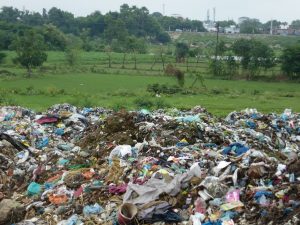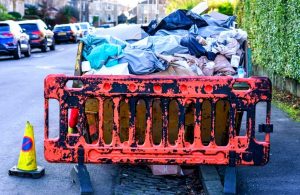Rubbish Removal and Public Health: Ensuring Clean Environments for Better Well-being
The Link Between Rubbish and Public Health
Rubbish removal is not merely about aesthetics or tidiness; it plays a crucial role in safeguarding public health. Accumulated rubbish in residential areas, streets, or commercial spaces can lead to a plethora of health hazards if not addressed promptly.
1. Spread of Diseases
One of the most significant risks associated with improper rubbish disposal is the spread of diseases. Piles of garbage can attract pests such as rats, flies, and mosquitoes, which are carriers of various pathogens. These pests thrive in unhygienic environments and can transmit diseases such as cholera, dysentery, and dengue fever to humans.

Rubbish Removal and Public Health
2. Air and Water Pollution
Improperly disposed rubbish can contaminate air and water sources, posing serious health risks to communities. Burning of waste releases harmful pollutants into the air, contributing to respiratory problems and exacerbating conditions such as asthma. Additionally, when rubbish leaches toxins into water bodies, it can contaminate drinking water sources, leading to waterborne illnesses.
3. Injuries and Accidents
Accumulated rubbish can create physical hazards, increasing the risk of injuries and accidents, especially in public spaces. Sharp objects protruding from heaps of garbage can cause cuts and puncture wounds, while unstable piles can collapse, leading to falls and fractures. Such incidents not only result in immediate injuries but also pose long-term health implications.
The Importance of Proper Rubbish Removal
Effective rubbish removal practices are essential for maintaining clean and healthy environments. By ensuring timely collection and proper disposal of waste, communities can mitigate the risks associated with rubbish accumulation and promote public health.
1. Disease Prevention
Regular rubbish removal helps eliminate breeding grounds for pests and reduces the spread of diseases. By keeping streets, parks, and residential areas clean, communities can minimize the risk of vector-borne illnesses and protect public health.
2. Environmental Protection
Proper rubbish removal prevents pollution of air, soil, and water resources, safeguarding the environment and public health. Recycling and waste segregation initiatives further reduce the amount of waste sent to landfills, minimizing environmental impact and promoting sustainability.

3. Safety Enhancement
Effective rubbish removal enhances safety in public spaces by eliminating physical hazards and reducing the risk of accidents. Clearing debris from roadsides and sidewalks ensures safe passage for pedestrians and motorists, preventing injuries and promoting community well-being.
Community Engagement and Responsibility
Addressing the issue of rubbish removal requires collective action and community engagement. Governments, businesses, and individuals must work together to implement sustainable waste management practices and promote a culture of responsibility towards the environment and public health.
1. Education and Awareness
Raising awareness about the importance of proper rubbish disposal through education campaigns and outreach programs is crucial. By educating the public about the consequences of improper waste management and the benefits of responsible behavior, communities can foster a sense of environmental stewardship and encourage active participation in rubbish removal efforts.
2. Collaboration and Partnerships
Collaborative efforts between government agencies, non-profit organizations, and private sector entities are essential for developing effective waste management strategies. Public-private partnerships can leverage resources and expertise to implement innovative solutions for rubbish removal and promote public health initiatives.
3. Enforcement of Regulations
Enforcing regulations and implementing strict penalties for littering and illegal dumping are critical measures in ensuring compliance with waste management laws. By holding individuals and businesses accountable for their actions, authorities can deter irresponsible behavior and maintain clean, healthy communities.
Conclusion
Rubbish removal is not just a matter of cleanliness; it is intrinsically linked to public health and well-being. By prioritizing proper waste management practices, communities can mitigate health risks, protect the environment, and create safer, healthier living environments for all.
